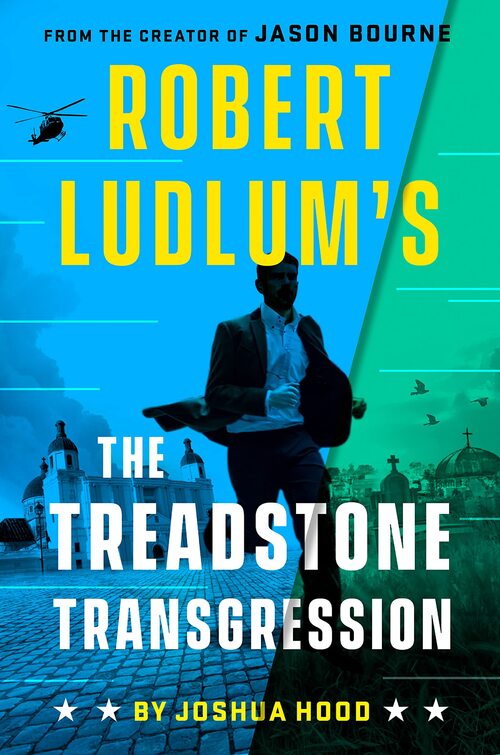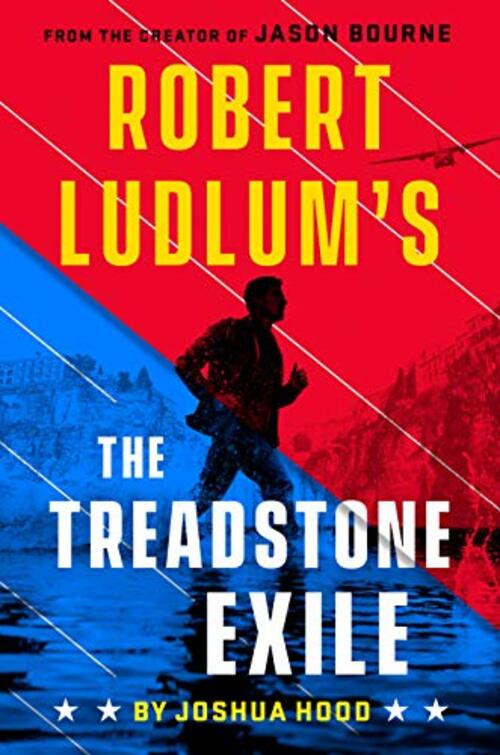Chapter 1
Ceuta, Spain
It was late afternoon and hot as hell when Carlito Rocha eased the Yamaha YZ125 to a halt on the hill overlooking the Calle Real. An hour before, the block was alive, the street packed with cars and the cobblestone sidewalks that bordered the glass boutiques awash with shoppers.
But now it was siesta, and the street lay silent and still. The only sound: the gentle put-put of the dirt bike’s two-stroke engine as Carlito motored down the hill and turned into the alley at the end of the block.
He stopped next to a green dumpster, backed the bike out of sight, and deployed the kickstand with the heel of his ratty tennis shoes. He made sure the front tire was pointed at the street. He thought about leaving the engine running in case someone called the policía, in which case he’d need to make a quick getaway.
No, someone will steal it, he thought, pulling the key from the ignition.
Carlito climbed off the bike, wiped the sweat from his forehead, and tightened the straps of his backpack before starting toward the metal door twenty feet in front of him, carefully avoiding the broken beer bottles and scattered trash that lined his path. He was almost to the door when something stopped him in his tracks.
What the hell is it?
He didn’t know, but something was wrong, and he was instantly on guard. Eyes ticking back the way he’d come, searching the mouth of the alley for a threat that wasn’t there.
Carlito found himself hesitating, thinking back to the plan he’d made a week ago. Wondering why in the hell he’d ever thought it was a good idea to leave the Barrio del Príncipe—the lawless fourteen-thousand-square-meter slum that he knew better than the back of his hand—and come north to the Barrio de Borizu.
He knew the answer was the same then as it was now. He’d come north after the economic collapse of 2008 that had precipitated his family’s move from their two-story house near the ocean to the squalid apartment in the barrio. After his father used what little money they had left to drink himself to death, Carlito had become the man of the house, leaving him responsible for feeding his mother and young sisters.
He’d tried to do the right thing, get a job, but with the Ceuta economy in shambles there was no work. It was a situation that left him with only two choices: starve or steal.
And Carlito was done being hungry.
So he decided to go north and try his hand breaking into the hotels close to the marina where the guiris—the rich tourists—stayed.
He thought back to his mother and sisters sitting at home, starving in that piece of shit apartment. They are counting on you, coward, he thought.
Carlito tugged the gray ski mask from his back pocket and pulled it over his curly brown hair. The mask was filthy, the fabric reeking of sweat and exhaust, but he ignored it. He grabbed the scarred crowbar from his pack and turned back to the door.
In one practiced motion, he drove the tip into the seam an inch above the lock and yanked on the handle. The door flexed and the bolt grated against the frame but refused to give.
“C’mon, you bitch,” he cursed, bracing his foot against the wall.
He pushed off, leaning back, pulling until his biceps shook and the sweat rolled down his face. He was panting now, mouth moving in a silent prayer, begging whatever god was listening that the door would open before he ran out of strength.
Then the lock tore free of the frame and the door swung open, throwing Carlito off balance.
He stumbled backward, losing his grip on the crowbar, the clatter of the metal off the concrete sending ice up his spine.
Oh, shit.
He scooped the crowbar off the ground, heart hammering in his chest when he stuffed it into the pack, the open doorway before him looming dark as the grave. Every instinct screaming at him to run. Get back to the bike and get the hell out of the alley.
But in the end, it was the hollow growl in his stomach and the thought of his family back in that wretched apartment that won out.
He rooted around the bottom of the pack, brushing over the tools of his trade, the rusted hammer and dull bolt cutters before closing around the grip of the .44 Magnum Carlito had stolen the week before.
The heft of the heavy revolver in his fist, the rattle of the massive bullets in the chamber, restored his confidence, reminding Carlito that no matter what was waiting for him inside, he was the one with the gun.
The motherf**ker in charge, he thought, stepping inside.
When Adam Hayes arrived at the Hostal La Perla, he hadn’t killed anyone in one hundred a fifty-two days. It wasn’t the kind of achievement you gloated about, not even in a lawless town like Ceuta, but it was a streak he wanted to keep alive. Which is why he was standing in the street, blue eyes scrutinizing La Perla’s weathered yellow façade and wondering if the hostel was worth the twenty-five euros advertised on the faded marquee.
It’s only for one night, he thought.
He started toward the front door, masking his normally predatory grace by affecting the slumped posture and wearied gait of a much older man—one of the many camouflages he’d been forced to adopt since first arriving in North Africa five months earlier.
The “lobby” was on par with the exterior: four bare concrete walls and a peeling linoleum floor—the only furniture a pair of worn couches and a scarred wooden table covered in faded travel magazines.
But Hayes didn’t see any rats, which meant it was clean enough. And more important than that, the lobby was free of the scumbags he would have encountered if he’d gone to any of the off-the-grid hotels he’d frequented in his past life.
Places that catered to murderers, pimps, and human traffickers—the kind of trash that made Hayes’s trigger finger itch—threatened to break his streak.
He moved to the front desk, where the night manager sat, eyes glued to the television perched in the corner.
“Yes?” he asked, eyes never leaving the TV.
“A room,” Hayes answered in accentless Spanish, “One on the bottom floor, near the back if you have it.”
“Twenty-five euros,” the man sighed.
“Near the back if you have it,” Hayes said, placing the bills on the desk.
“Yes, yes, whatever you want.”
The manager grabbed the cash without looking up. His hand darted below the desk and returned with a key attached to a faded square of plastic.
“Room 107,” he said, still glued to the TV, “it’s around back, next to the toilets.”
“Gracias.”
Hayes followed the burnt rope smell of marijuana into a hallway lit by a pair of bare bulbs. He was on autopilot now, the thousands of hours spent working the Treadstone kill houses back in the States freeing his mind and body to work independently of conscious thought. His eyes scanned for threats, keying in on the open door, muscle memory taking over as he approached, pace slowing, hand dropping to the pistol holstered at his waist, fingers closing around the grip.
But instead of an assassin waiting with a gun, Hayes found a mass of unwashed backpackers passing a joint.
“Want a hit?” one of the kids asked in French.
“Thanks, but I’m good.”
He continued down the hall, pausing at the emergency exit to check the deadbolt, make sure it was secure before stopping in front of room 107. He unlocked the door; any thought that his days of staying in run-down hotels were over when he left Treadstone twenty-four months earlier vanished at the sight of the chipped Formica table and the ancient air conditioner hanging over the sagging bed.
Its only for one night, he told himself.
That was three days ago.
The A/C had given out the first night, and it was stifling in the room. Too hot to sleep, or think, or do anything other than sit there and sweat.
But Hayes was well versed in the art of suffering. It was a skill he’d mastered during his time in Treadstone—the CIA’s Special Access Program that had plucked him out of the military and turned him into a government-sanctioned assassin.
So he sat at the table. the sand linen button-down clinging to his back like a sheet of Saran Wrap as he dropped the magazine from the 1911 and racked the round out of the pipe. The pistol was an STI Staccato XC, and it was the third time that day Hayes had broken it down.
He took his time, wiping a rag over the Trijicon miniature reflex sight mounted in front of the rear sight before removing the slide. Hayes had just set the guide rod and spring on the oil-soaked shirt he’d laid across the table when his cell finally chirped to life.
About damn time.
“Da?” he answered, putting the phone on speaker.
“Marina Hércules,” the voice replied in Russian. “Do you know where that is?”
Hayes might have been stuck in the room for the past three days, but he hadn’t been idle. Besides checking his gear and cleaning the pistol, he’d memorized the travel map he’d picked up during one of his forays out for food. As his fingers flew over the pistol, he brought it up in his mind.
“Yes, I know where it is.”
“Good, be at the Sky Bar in one hour, and come alone.”
Hayes ended the call, slammed the magazine into the now reassembled pistol, racked a round into the chamber, and got to his feet. He stuffed the STI into its inside the waistband holster and moved to the bed where his bag lay waiting.
His time as a Green Beret in Afghanistan had taught him how to live out of a rucksack; how to pack light, which is why the only comfort items in his bag were an extra shirt, pair of pants, one small toiletry bag, and four pairs of socks.
Everything else either went bang or boom.
Hayes stripped off his shirt, strapped a level III Kevlar vest to his chest, and shoved an extra magazine of 9-millimeter hollow points into the pouch on his belt. After belting the travel wallet with his passport and emergency cash across his stomach, he pulled on his shirt. He stuffed the wad of euros into his right pocket and the spring-loaded Microtech Troodon knife into his left, shouldered the pack, and started for the door.
Hayes stepped out into the hall and after locking the door behind him, started toward the office. He was two feet from the emergency exit when the door flew open. The blaze of sunlight that rolled into the dark hallway hit Hayes in the face. It exploded like a flashbang, leaving him blind.
His instincts took over and he stepped to the left, shoulder searching for the wall, right hand yanking the pistol from its holster. He blinked the stars from his eyes and was seeking a target when a masked figure stepped into the hall, the pistol in his hand aimed at Hayes’s face.
From ROBERT LUDLUM’S THE TREADSTONE EXILE by Joshua Hood, published by Putnam, an imprint of the Penguin Publishing Group, a division of Penguin Random House LLC. Copyright © 2021 by Joshua Hood





